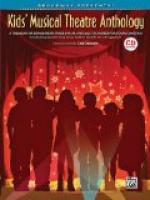EDWARD L. BERNAYS
ACCIDENTS WILL HAPPEN
He was a burly Dutch tenor,
And I patiently trailed him in his waking and sleeping
hours
That I might not lose a story,—
But his life was commonplace and unimaginative—
Air raids and abdications kept his activities,
(A game of bridge yesterday, a ride to Tarrytown),
Out of the papers.
I watchfully waited,
Yearning a coup that would place him on the
Musical map.
A coup, such as kissing a Marshal Joffre,
Aeroplaning over the bay,
Diving with Annette Kellerman.
Then for three days I quit the city
To get a simple contralto into the western papers.
Returning I entered my office; the phone jangled.
The burly tenor was tearfully sobbing and moaning
over the wire;
Tremor and emotion choked his throat.
This was his ominous message:
A taxicab accident almost had killed him two and one
half days ago;
He had escaped with his body and orchid-lined voice—
And not a line in the mornings or evenings!
What could I do about it?
Accidents will happen.
THE BARITONE
He was a wonderful Metropolitan singer.
His name had been blazoned over these United States,
And in Europe it was as well known.
Records of him could be bought in the smallest hamlet;
Nothing but praise had been shed upon the glory of
his name.
In May he was scheduled to sing in Chicago
At a festival where thousands were to foregather
To do praise to him and his voice.
Two days before he left, he came to his manager’s
office
With a sickly expression all over his rotund face
And a deathly gasp in his voice.
One thought he needed a doctor,
Or the first aid of some Red Cross nurses.
He was ushered into the private office
To find out his trouble.
This was his lament in short;
A friend, in the hurry of the moment,
Had procured tickets for him on the Twentieth Century
Which demanded an extra fare of six dollars,—
And he wanted to ride on the cheapest train.
So we got him tickets on another road
Which takes thirty six hours to Chicago and perhaps
more,
And the great singer, whose name has been blazoned
over these United States
And was as well known in Europe,
Walked out contented and smiling like a young boy.
PATRIOTISM
The patriotic orchestra of eighty five men
Was keyed to an extraordinary patriotic pitch
For these were patriotic concerts,
Supported by the leading patriots of the town,
(Including a Bulgarian merchant, an Austrian physician
and a German lawyer),
And all the musicians were getting union wages—and
in the summer at that.
So they were patriotic too.
The Welsh conductor was also patriotic,
For his name on the program was larger than that of




